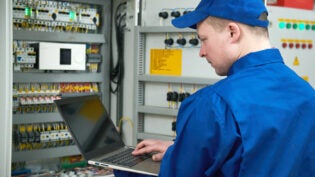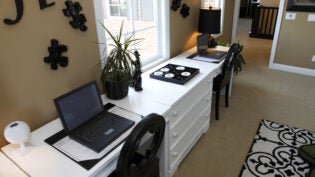
As a solopreneur, finding a consistent workspace can be a battle. Whether feeling lonely or distracted in your personal living room to feeling like an intruder in a coffee shop, there’s got to be another solution where productivity and your personality can soar.
While some solopreneurs thrive on rolling out of bed and into their home office space, many have discovered the special benefits of coworking. From small-town main streets to major metropolitan cities, unique coworking spaces have opened around the world. These versatile meeting places charge monthly membership fees that are completely tax deductible and often include an array of on-site business amenities, conference rooms and that morning and afternoon coffee that keeps your ideas percolating.
By choosing a coworking space, you avoid the task of determining whether your home office counts as a tax deduction, which can often be a perplexing undertaking. To qualify for a home office deduction, the space or inventory storage in your home must be used regularly and exclusively for work. If the space doubles as your child’s playroom in the evening, turns into a guest bedroom consistently when your out-of-town family visits or hosts dinner parties on the weekends, it most likely does not comply with IRS standards for a deduction.
On the other hand …
If you choose to purchase a membership at a local coworking space for your personal business, you can include the cost as an unreimbursed employee expense on Schedule A of Form 1040. Since it can cost anywhere from around $200 for a shared desk to $1,000 for a private space or office depending on the company you rent from, the deduction is significant to include when completing your taxes as a self-employed individual. If you are using the coworking space for the convenience of your employer, make sure to talk to your manager about how to be reimbursed and how to navigate the IRS’ two percent rule, which states that you may claim the amount of your expenses that exceeds two percent of your adjusted gross income.
To get the most out of your deduction, be sure to carefully keep track of your expenses, including additional costs for conference room reservations or client meals. It’s also important to note that the IRS does not allow you to count the cost of a standard commute or personal meals when completing your tax forms.
What’s so great about coworking?
In addition to being a tax benefit, most coworking communities include copy and print services as well as administrative support and protected internet access. Entrepreneurs who work away from home also enjoy endless networking opportunities and the chance to collaborate with a wide range of people from many different fields and backgrounds.
Bigger businesses can also take advantage of coworking spaces when investing in remote offices. In this case, the tax responsibility falls on the company and not the employee, but it’s helpful to know as an employee how these expenses relate to you. Since it’s easy to get overwhelmed balancing a business and the responsibilities that accompany that, our team is always on hand to answer questions about deductions, quarterly self-employment taxes or anything else you need help accounting for.












